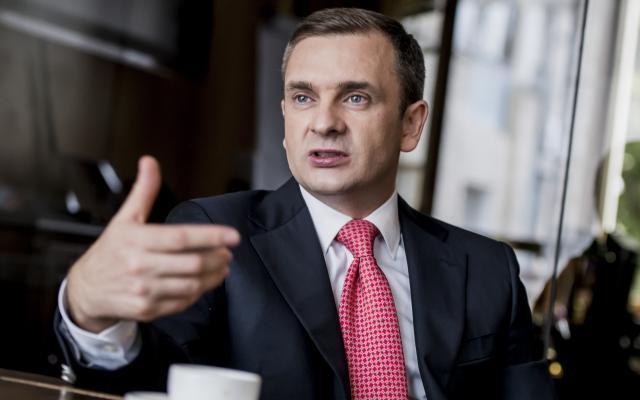
Competition for vacant posts at the Supreme Court enters the final straight

Home quote
Since then the Higher Qualification Commission of Judges has conducted an unprecedented, large-scale and transparent selection from more than 800 candidates, who have submitted their applications, and has identified 120 candidates through the testing and interviewing stages. No matter how many warnings, comments, speculations and criticisms it received, the very fact that the competition took place is a considerable merit of the HQCJ and we have to express great gratitude to international partners for the support provided in this process.
The competition for vacant posts at the new Supreme Court, which began on November 7 previous year, was to serve as a showcase of judicial reform, a major institutional proof of its success.
Since then the Higher Qualification Commission of Judges has conducted an unprecedented, large-scale and transparent selection from more than 800 candidates, who have submitted their applications, and has identified 120 candidates through the testing and interviewing stages. No matter how many warnings, comments, speculations and criticisms it received, the very fact that the competition took place is a considerable merit of the HQCJ and we have to express great gratitude to international partners for the support provided in this process.
Around 1436 people have registered for participation in the competition, 846 people submitted their documents for participation, 653 of them were admitted to the competition, and 625 were admitted to take the qualification examination. Out of 120 recommended candidates 93 are judges and 27 are ‘non-judicial’ candidates: scholars or advocates who, for the first time, are able to apply for a post at the Supreme Court under a new law. Only five out of the 18 current Supreme Court judges have successfully passed all stages of the competition.
Such analytical results give a cautious hope that the highest judicial authority will be upgraded with high-quality personnel, both by non-system people from the bar and academic circles, and by strong judicial candidates. The competition has made it possible to integrate professionals from the judiciary corps, who have confirmed their professional level, psychological readiness and moral virtues for work at the new Supreme Court. This fact shall be attributed to the benefits. This question cannot be guided by subjective criteria of sympathy or antipathy for individual persons or, in general, for anyone who has previously worked out there. Fairly enough, the competition participants passed all filters of qualification assessments and public opinion.
As a Vice President of the Ukrainian National Bar Association, which brings together all members of a professional bar community, listed as having 35 000 professionals, I am particularly pleased to note the achievements of our colleagues in this competition. And I am convinced that their professional experience will also be useful when the Supreme Court finally gets to work.
However, the moment when it can happen is at risk now. And it is not because the deadline for competition was a bit delayed. The legislation provided for six months for its conduct, and, therefore, it had to be completed in May. In addition, 40 complaints were filed to the Higher Administrative Court about the activities of the HQCJ during the competition. At the moment 27 cases are under consideration, and five more are challenged at the court of appeal, namely, at the Supreme Court. It is unknown whether this constitutes a hidden threat to the work of the Supreme Court. The obvious obstacle to actual work of the already formed Supreme Court (since the required minimum of judges – 65 judges – is appointed) is a lack of the legislative framework. New procedural codes have not been adopted yet, although they shall regulate the court’s procedural rights and obligations. The draft law was adopted in the first reading only, and then the Parliament adjourned for recess. The draft law No. 6232 “On Amendments to the Commercial Procedure Code of Ukraine, the Civil Procedure Code of Ukraine, the Code of Administrative Legal Procedure of Ukraine and other legislative acts” was adopted in principle on June 20. Before the second reading it was ready and included on the agenda of sessions dated July 11 and July 13. However, it was not considered. It is now on the agenda for the current plenary week, and will be considered on September 19.
At the moment all documents for appointment to the Supreme Court are considered by the Supreme Council of Justice. These two processes – the approval of amendments to the Codes and the final appointment of the Supreme Court judges – shall fall in the same time interval. But we can already predict that the final period will be put not earlier than in November this year.

Valentyn Gvozdiy
Advocate, Deputy President of the Ukrainian National Bar Association, Deputy Chair of the Bar Council of Ukraine, Managing Partner of Gvozdiy and Oberkovych Law Firm
© 2026 Unba.org.ua Всі права захищені
"Національна Асоціація Адвокатів України". Передрук та інше використання матеріалів, що розміщені на даному веб-сайті дозволяється за умови посилання на джерело. Інтернет-видання та засоби масової інформації можуть використовувати матеріали сайту, розміщувати відео з офіційного веб-сайту Національної Асоціації Адвокатів України на власних веб-сторінках, за умови гіперпосилання на офіційний веб-сайт Національної Асоціації Адвокатів України. Заборонено передрук та використання матеріалів, у яких міститься посилання на інші інтернет-видання та засоби масової інформації. Матеріали позначені міткою "Реклама", публікуються на правах реклами.